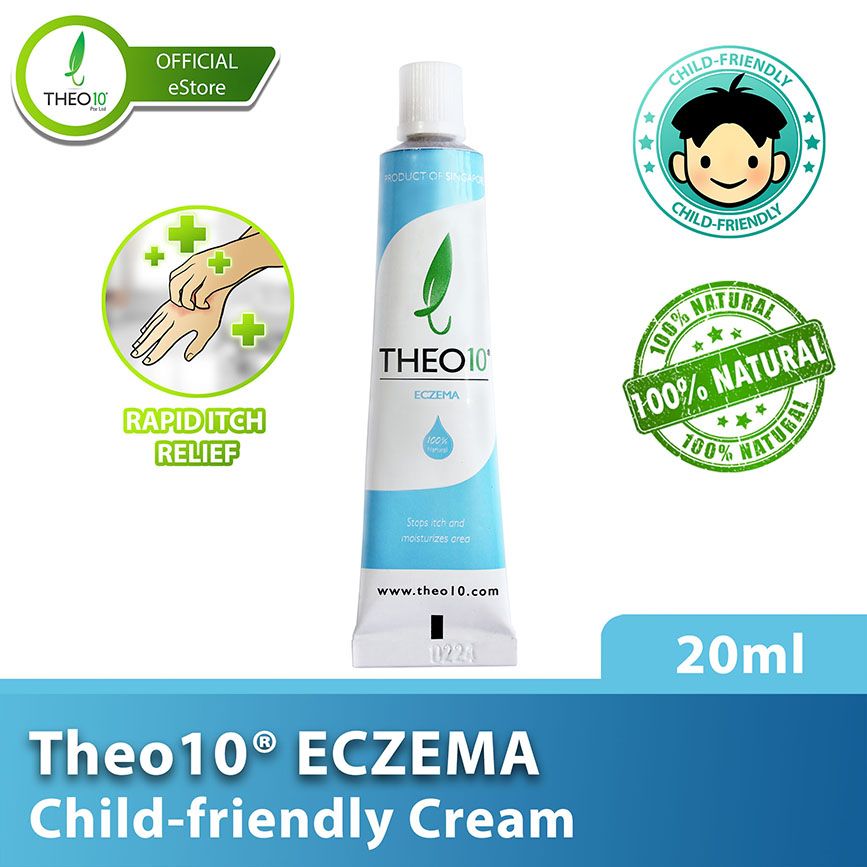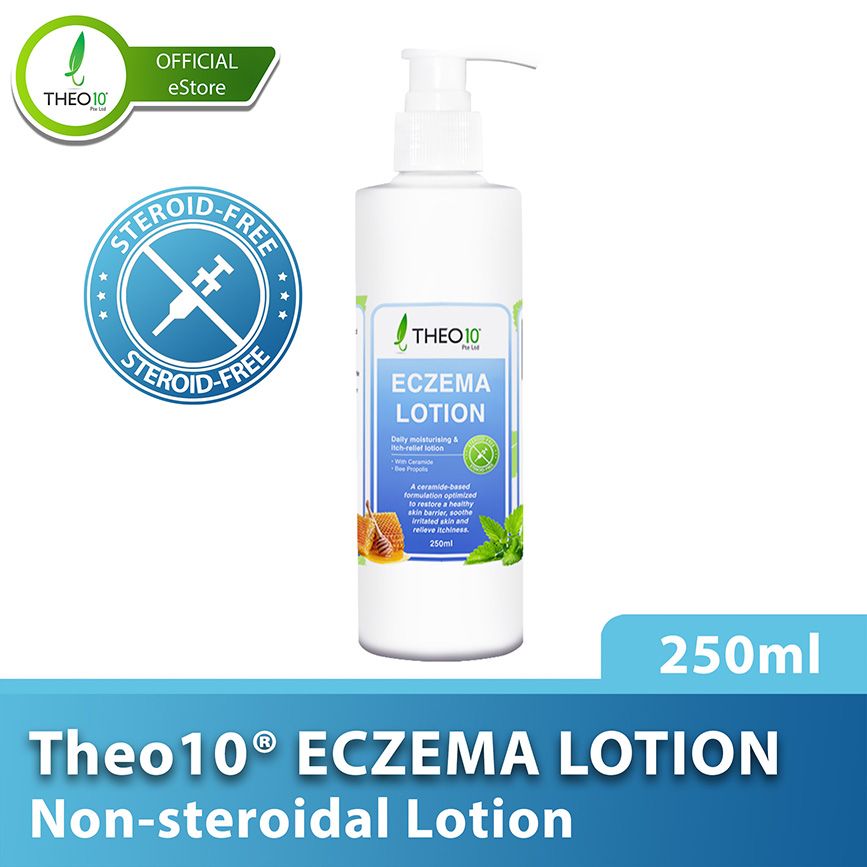
What is eczema, treatment, causes and types?

Information on Eczema
Singapore has one of the highest rates of eczema in Asia. This chronic skin condition, also known as dermatitis, results in the skin becoming inflamed or irritated. The skin will become dry, red, and extremely irritating as a result of the symptoms. The cheeks, knees, hands, or feet are frequent areas for these rashes to appear. It could also have an impact elsewhere. Eczema must be treated before it negatively impacts a person's quality of life.
Atopic dermatitis, the most typical kind, is frequently referred to as "eczema" by individuals. Asthma, hay fever, and atopic dermatitis are only a few of the immune-related disorders referred to as atopic. Dermatitis is the medical term for skin irritation.
Eczema is not contagious.
Treatments
Eczema presently has no known treatment. Healing the afflicted skin and avoiding symptom flare-ups are the goals of treatment for the disorder.
Based on a patient's age, symptoms, and present health, doctors will recommend a course of therapy.
Medications
To treat the signs of eczema, doctors might recommend a number of drugs, including:
- Topical corticosteroid creams and ointments: These are anti-inflammatory drugs that should alleviate the primary signs and symptoms of eczema, such as swelling and itching. They can be applied straight to the skin. Medication with a prescribed strength may be advantageous for certain persons.
- Antibiotics: When eczema and a bacterial skin infection coexist, doctors will typically recommend antibiotics.
- Topical calcineurin inhibitors: This medication inhibits the immune system's function. It lessens inflammation and aids in preventing flare-ups.
- Barrier repair moisturizers: These aid in skin restoration and decrease water loss.
- Phototherapy: This procedure exposes the patient to UVA or UVB rays. Mild dermatitis can be treated with this technique. Throughout the course of therapy, a doctor will keep a constant eye on the skin.
- Injected biologic drugs: These treatments stop immune system reaction by limiting immune system response.
Causes
Eczema's exact cause is unknown; however, many medical experts think that a mix of hereditary and environmental factors may be to blame.
If one or both parents have eczema or similar atopic disorder, their children are more likely to as well. The risk is increased if one or both parents suffer from an atopic disorder.
The signs of eczema may also be worsened by certain environmental variables. These include:
- Irritants: These include soaps, detergents, shampoos, disinfectants, and juices from fresh fruits, meats, and vegetables.
- Allergens: Dust mites, pets, pollens, and mold can all lead to eczema. This is known as allergic eczema.
- Microbes include bacteria such as Staphylococcus aureus, viruses, and certain fungi.
- Hot and cold temperatures: Very hot and very cold weather, high and low humidity, and perspiration from exercise can bring out eczema.
- Foods: Dairy products, eggs, nuts and seeds, soy products, and wheat can cause eczema flares.
- Hormones: Females may experience increased eczema symptoms when their hormone levels are changing, such as during pregnancy and at certain points in the menstrual cycle.
Types
There are several types of eczema. Besides atopic dermatitis, other types include:
- Allergic contact dermatitis: A skin response that follows contact with an allergen or material that the immune system perceives as alien.
- Dyshidrotic eczema: This is an irritated skin condition that affects the soles of the feet and the palms of the hands. It is distinguished by blisters.
- Neurodermatitis: This condition causes scaly skin areas on the lower legs, forearms, and head. It happens as a result of a localized insect bite irritation.
- Discoid eczema: Discoid eczema, sometimes called nummular eczema, appears as inflamed skin areas that are itchy, crusty, and scaly.
- Stasis dermatitis: Skin inflammation on the lower leg is known as stasis dermatitis. It typically has something to do with circulation issues.
Recommendation
People have a different reaction to each treatment, but natural remedies would not cause any damage while helping the majority so here are some natural options to treat symptoms of eczema and improve skin care.
- Use natural eczema cream, such as Theo10® Eczema.
- After that use eczema lotion, such as Theo10® Eczema Lotion.
- Further use moisturizers if needed.
Theo10® Eczema

Description of Theo10® Eczema
- Theo10® Eczema contains high menthol content that relieves itch to stop the user from scratching. Neem oil comes to contact with the skin and helps improve the skin condition. Beeswax ensures that the oils are in constant contact with the skin. It also lends its water-resistant property for a prolonged duration of protection. It moisturizes the skin as our beeswax lends its water-resistant properties to keep the skin constantly moisturized.
Theo10® Eczema Ingredients
- Peppermint Essential Oil
- Neem Seed Oil
- Triple Filtered Beeswax
- Bee Propolis
Notes (Theo10® Eczema):
- No Steroids
- Smells like mint honey
- Suitable for young children
Theo10® Eczema Lotion

Description of Theo10® Eczema Lotion
- Theo10®️ Eczema lotion is non-steroidal and specially formulated as an ‘after-care’ lotion following an eczema outbreak. It also prevents further outbreak caused by dry and sensitive skin. Daily application is recommended. It is recommended for use after our Theo10®️ Eczema has healed an eczema outbreak and the skin is no longer itchy or reddish. It contains ceramides sourced from rice bran, naturally occurring bee propolis and vegetable glycerine.
Theo10® Eczema Lotion Ingredients:
- Ceramide (Rice Bran sourced)
- Aloe Barbadensis Miller (200x concentrate)
- Organic Coconut Oil (Cold Pressed)
- Bee Propolis
- Vegetable Glycerine (USP Grade)
- Distilled Water
Notes (Theo10® Eczema Lotion):
- Only apply Theo10®️ Eczema Cream for 2 - 3 days or until skin is no longer itching nor reddish
- Once eczema outbreak has passed, use Theo10®️ Eczema Lotion and stop applying Theo10®️ Eczema cream
- Daily basis, use as ‘After-care’ and prevention lotion
- Highly moisturizing, contains naturally derived ceramides suitable for all skin types
- High quality and Organic certified ingredients without any alcohol, preservatives or artificial fragrances and parabens
Product link: https://www.theo10.com/theo10-eczema-20ml.html
Powered by Mirasvit Magento 2 Extensions














